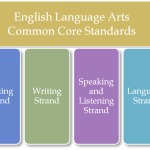Homeschooling has become an increasingly popular educational option for parents around the world. With the COVID-19 pandemic and the shift to remote learning, many families have turned to homeschooling as a way to provide their children with a more personalized education. If you’re considering homeschooling for your child, here’s everything you need to know.
What is Home-schooling?
Homeschooling is the practice of educating children at home instead of sending them to a public or private school. Home schooling can take many forms, from a structured curriculum taught by a parent or tutor to unschooling, which allows children to learn at their own pace and follow their interests. Home schooling can be a temporary solution for families who are traveling or going through a life transition, or it can be a long-term educational choice.
Pros of Home-schooling
There are many benefits to homeschooling, including:
- Personalized education: Homeschooling allows parents to tailor the education to the child’s individual needs, interests, and learning style. This can lead to better academic outcomes and a more positive learning experience.
- Flexibility: Homeschooling allows families to create their own schedules and work at their own pace. This can be particularly helpful for families who have children with special needs or who need to work around commitments.
- More time for extracurricular activities: Homeschooled children often have more time to pursue extracurricular activities, such as sports, music, or volunteering.
- Safe learning environment: Homeschooling can provide a safe learning environment for children who have experienced bullying or other negative experiences in traditional schools.
Cons of Home-schooling
There are also some challenges associated with homeschooling, including:
- Socialization: Homeschooled children may miss out on the socialization opportunities that come with attending school. However, many homeschooling families participate in co-ops or other social activities to ensure their children have opportunities to interact with their peers.
- Lack of resources: Homeschooling can be expensive, particularly if families choose to use a structured curriculum or hire a tutor. Families may also struggle to find specialized resources, such as science labs or music programs.
- Legal requirements: Homeschooling is legal in most countries, but families must comply with certain legal requirements, such as filing paperwork or submitting to periodic evaluations.
How to Get Started with Home-schooling
If you’re interested in homeschooling, here are some steps to get started:
- Research your options: There are many different homeschooling approaches, so it’s important to research your options and decide what will work best for your family.
- Set goals: What do you want your child to achieve through homeschooling? Setting goals can help you stay on track and measure your progress.
- Choose a curriculum: You may choose to use a structured curriculum, create your own, or use a combination of both. There are many resources available online and through homeschooling organizations to help you choose a curriculum that meets your needs.
- Establish a routine: Homeschooling requires discipline and structure, so it’s important to establish a routine that works for your family.
- Connect with other homeschooling families: Homeschooling can be isolating, so it’s important to connect with other homeschooling families in your community. You may choose to join a co-op or attend homeschooling events to meet other families.
Is Home-schooling Right for You?
Homeschooling can be a wonderful educational choice for families who are committed to providing their children with a personalized, flexible, and safe learning environment. However, it’s not the right choice for everyone. Before you make the decision to homeschool, it is important to carefully consider your family’s needs, resources, and goals. You may want to consult with other homeschooling families or educational professionals to help you make an informed decision.
In conclusion, homeschooling can be a rewarding and effective educational choice for families who are committed to providing their children with a personalized, flexible, and safe learning environment. While there are challenges associated with homeschooling, many families find that the benefits outweigh the drawbacks. If you’re considering homeschooling, do your research, set goals, and connect with other homeschooling families to create a successful and fulfilling educational experience for your child.


